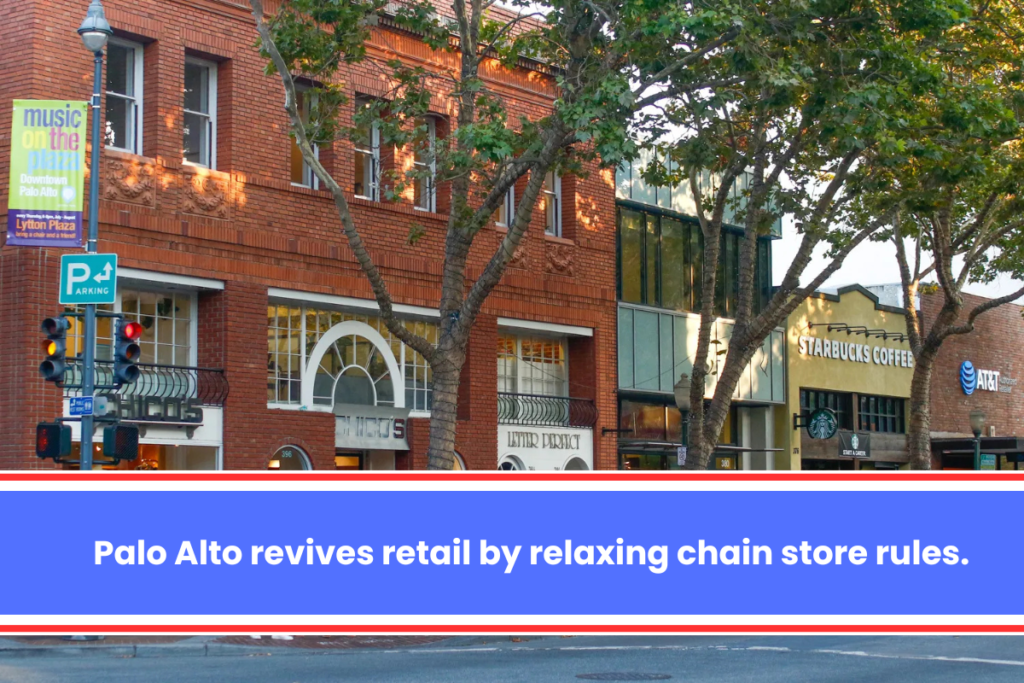The Palo Alto City Council voted unanimously to make zoning changes that make it easier for stores like chain stores to open. This is part of an effort to bring life back to the city’s main downtown streets.
The changes, which were approved by the city’s Planning and Transportation Commission and its Retail Committee on Monday night, are part of a long-term plan to make it easier for stores to open by, for example, changing how permits work or making streets better.
But while those changes are being made, which could take longer, the council decided to accept some short-term solutions right now.
Some of these changes include making it easier for “formula retail,” like chain shops and restaurants, to open on Palo Alto’s main streets, where they used to be discouraged and needed special permits.
The new rules that were passed on Monday night change the type of business that can operate on California Avenue from chains with 10 or more locations across the country to restaurants with at least 50 locations across the country.
It also loosens rules for gyms on Cal. Ave., letting them have more space before they need a permit.
The changes were backed by Council Member Vicki Veenker on Monday night. “We can always do more, but I think we really need to just start,” she said.
The city is trying out changes to lower its vacancy rate, which was recently found to be about 15% on California Avenue and about 10% on University Avenue. This move comes at the same time.
The council also changed some definitions of what is considered “retail-like” and added pet grooming, auto showrooms, and retail-based financial institutions to the list of things that are “retail-like.
” They also added a more general category that lets planning staff decide on a case-by-case basis what uses for ground-floor retail will be most effective if they expect a lot of foot traffic.
Planning Director Jonathan Lait said in his talk that this could make retail spaces available to businesses that don’t always fit the rules set by the government.
On Monday night, Lait said, “That was set up so that we can be more flexible in the future.”
The last change made on Monday makes it easier for companies to switch to another use when they are having trouble making ends meet.
This could be the last change that helps businesses. Together, the changes that are being planned should give businesses, both new and old, the best chance to stay.
People in the public, including Charlie Weidanz, CEO of the Palo Alto Chamber of Commerce, agreed with the changes.
Weidanz said at the meeting, “The Chamber agrees that giving retail spaces more freedom is a good thing.” “We need to make our retail business corridors more appealing.”
The city’s retail group will hold a study session on Wednesday at 9 a.m. to keep talking about how to fill the empty stores on University Avenue.


